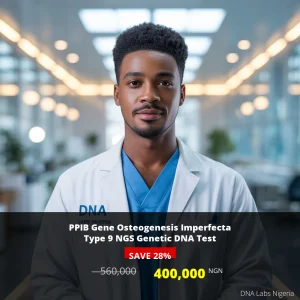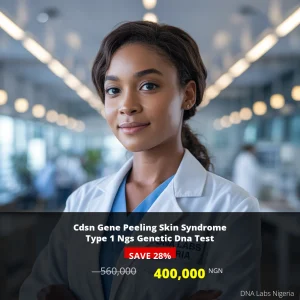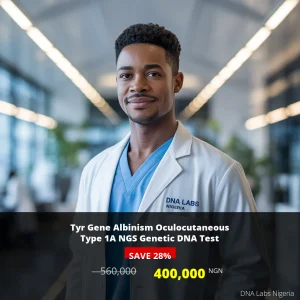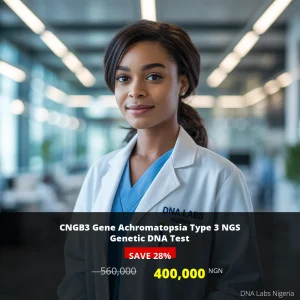CLCN7 Gene Osteopetrosis Autosomal Dominant Type 1 NGS Genetic DNA Test
Introduction
The CLCN7 Gene Osteopetrosis Autosomal Dominant Type 1 NGS Genetic DNA Test is a cutting-edge diagnostic tool designed to identify mutations in the CLCN7 gene that are responsible for osteopetrosis. This autosomal dominant condition leads to excessive accumulation of bone mass, resulting in various skeletal complications. Understanding your genetic predisposition through this test is crucial for effective management and treatment.
What the Test Measures
This genetic test specifically measures alterations in the CLCN7 gene, which plays a vital role in bone resorption. By utilizing Next Generation Sequencing (NGS) technology, we can accurately detect mutations that may lead to osteopetrosis.
Who Should Consider This Test?
Individuals with a family history of osteopetrosis or those exhibiting symptoms such as:
- Bone pain or fractures
- Abnormal bone density on X-rays
- Neurological symptoms due to nerve compression
Additionally, anyone with risk factors such as a known family history of CLCN7 mutations should consider this test.
Benefits of Taking the Test
- Early diagnosis of osteopetrosis, allowing for timely intervention.
- Informed family planning options for those with a genetic predisposition.
- Personalized treatment strategies based on genetic findings.
- Peace of mind for individuals concerned about their genetic health.
Understanding Your Results
Results will indicate whether mutations in the CLCN7 gene are present. A genetic counselor will guide you through the implications of your results, helping you understand the risks and potential health impacts.
Test Pricing
| Price Type | Amount (NGN) |
|---|---|
| Discount Price | 400,000 NGN |
| Regular Price | 560,000 NGN |
Book Your Test Today!
Don’t wait to understand your genetic health. Book the CLCN7 Gene Osteopetrosis Autosomal Dominant Type 1 NGS Genetic DNA Test today. For inquiries and booking, please call or WhatsApp us at +2348110567037.
Turnaround time for results is approximately 3 to 4 weeks. Sample type can be blood, extracted DNA, or one drop of blood on an FTA card. Ensure you have a clinical history and consider a genetic counseling session for optimal results.







